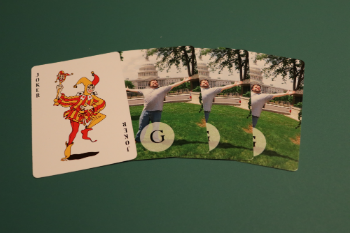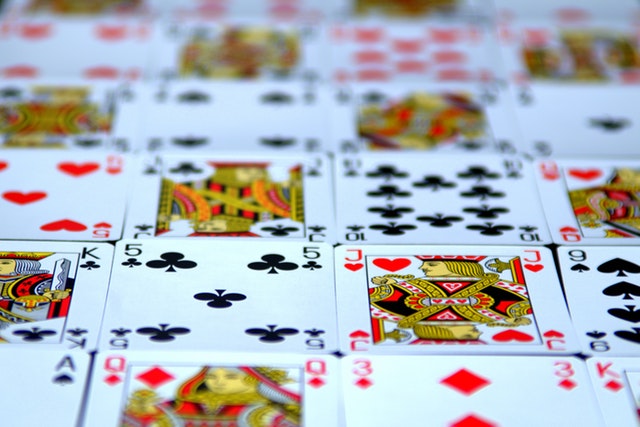A deck of playing cards is an amazing thing. Though entirely unnecessary, they’re found in nearly every home.
I’ve heard that if you spent your whole life shuffling cards, you’d never deal the same deck twice. I don’t know if that’s true, but I know that the number of possible card combinations pales in comparison to the priceless bonds that playing cards help create.
Never trust a family that doesn’t own a well-worn deck of cards.
Card games reveal hidden aspects of our character. Whether it’s the sweet grandmother who suddenly shows no mercy and shouts Rummy with the intensity of a Drill Sergeant, the shy cousin who nearly pees herself with laughter at someone else’s misfortune, the silent sibling laying in wait like a crocodile ready to snatch the right card at an opportune moment, or the scatterbrained in-law who keeps interrupting for refreshers on the rules.
Everyone has a character quirk and card games expose most of them.

Playing cards have provided some of the most joyous moments in my family – on either parent’s side and with both in-laws and my step-family.
Card games test family dynamics like one-eyed Jacks watching the suicidal King come to terms that his world of order is beset by chaos.
It’s interesting to watch alliances form and pairs shift for different games. Pay careful attention when anyone refuses to sit next to a certain someone, or how different families shift towards pairing up by couples, generations, or sexes.
I’ve played games with cards face up or down, held them and tossed them, picked them up and dropped them. I’ve spread them on the table and picked one from the deck. Hid them in my sleeve, caught them under someone else’s seat, lost ‘em, tossed ‘em, printed my picture on them and forgot them.
I’ve given certain cards special powers, incorrectly guessed the one you pulled and then found it in my pocket. I’ve drunk because I pulled one and drank again because I didn’t.
In college we bonded over games of cards, especially one called Ring of Fire where you spread all the deck into a series of rings and had to drink for as many seconds as the card you picked; with each successive ring, the drinking times increased. Ring of Fire is supposed to be a party game played among a dozen or so, but I’ve learned the hard way that it’s especially devastating when played among a party of two.
I’ve noticed tell-tale dogear marks on cards, ones with portions peeled off from being stuck together, and played my fair share of games without a full deck.
Cards tap into something deeply ingrained within our souls no matter where you play them.

I’ve sat at my parents’ dining room tables, a bed and breakfast in Sharon Springs, New York, dorm rooms, beachside cottages, a rural country farm, a Fort Lauderdale retirement home, shivering in a friend’s garage on a Wednesday at 2 am, and as a guest in countless people’s homes.
I once played a game of war on a plane with my brother that lasted from Pittsburgh out to Arizona. 2s beat Aces. Why? We’ll never know. Sometimes they just do.
The rules and personalities may change, but the socialization never does.
When my mother’s father started to really decline with Alzheimer’s, his aptitude for cards was one of the final pieces to go. I would sit with him in the middle of the night watching him slowly play solitaire rhythmically and mechanically.
A silent game for one was the last way I ever really communicated with my grandfather – pointing out missed opportunities while he stacked his way towards King.
You don’t really know a person until you’ve played cards with them. No matter how you play.
If you enjoy my columns, please subscribe below.
If you want to syndicate this column, you may contact me here to discuss the details.
You may notice that I’ve disabled commenting on this post. I’d love to hear your thoughts by email at [email protected].